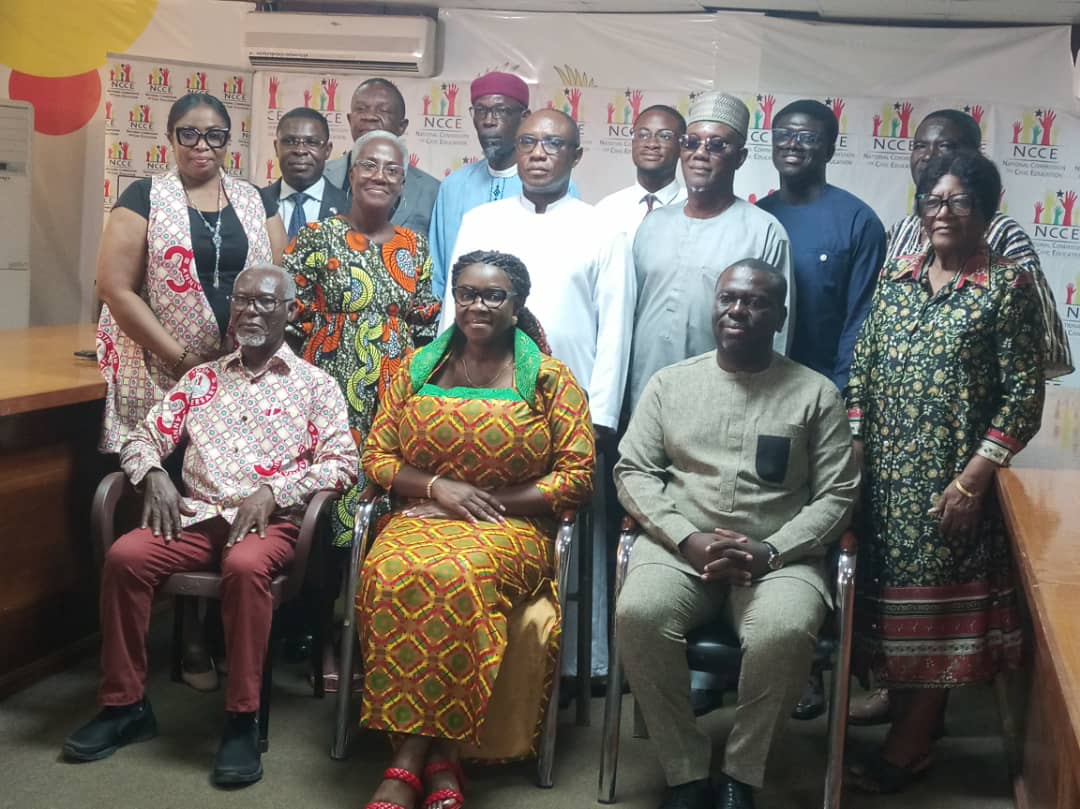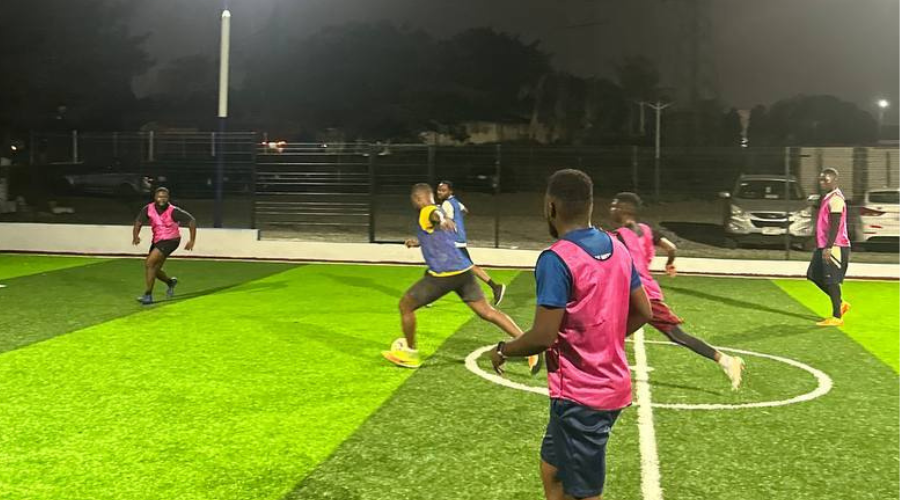
The National Commission for Civic Education (NCCE) has officially launched its 2024 General Election Research Report, titled “Matters of Concern to the Ghanaian Voter.”
The report, which surveys the real concerns and expectations of citizens ahead of the December 7, 2024, general elections, was launched on Wednesday, October 23, 2024.
Addressing the gathering at the launch, the Chairperson of NCCE, Kathleen Addy, emphasised the core mission of the NCCE, which is to sustain Ghana’s democracy through effective civic education.
She reiterated that the Commission’s mandate, rooted in the NCCE Act 1993 (Act 452), ensures that the NCCE works to create public awareness about the Constitution and defend it against abuse.
“We are present in every region, district, municipality, and metropolis across the country, with 280 offices nationwide. We are independent in the performance of our work, and integrity underpins everything we do,” she said.
Madam Addy outlined the NCCE’s five core functions as stipulated by the NCCE Act. These include creating and sustaining awareness of the Constitution’s principles, educating the public on their civic responsibilities, and recommending solutions to inequalities that undermine democracy.
She emphasised that the Commission’s work ensures that Ghanaians not only understand their rights and responsibilities but also actively participate in protecting the Constitution.
Turning to the focus of the event, Ms. Addy described the report as an election-influencing program that has become a critical reference for policymakers, political parties and citizens alike. “In this report, we clearly see exactly what is important to the citizens of Ghana and what we expect from those we elect to lead,” she explained.
She stressed that the Matters of Concern report encapsulates the hopes and dreams of Ghanaians, painting a vivid picture of the Ghana they aspire to live in.
The report also serves as the basis for the NCCE’s constituency town hall meetings, where parliamentary candidates engage directly with citizens on issues that matter most to them.
In previous election cycles, the report has played a pivotal role in shaping political party manifestos, Ms. Addy noted.
One of the key issues addressed in the report is the increasing trend of monetisation in politics, which Ms. Addy identified as a growing threat to the integrity of Ghana’s democracy.
She explained that the practice, once subtle, has become more blatant, with citizens openly discussing the expensive gifts and cash they receive from politicians.
“It used to be muted, but now it is very loud. It is in your face. We have moved from markets and candles being handed out as small gifts for potential voters to now seeing flat-screen TVs, fridges and other expensive items. This trend is a threat to our democracy and the stability of the state,” Ms. Addy remarked.
The Director of Research, Monitoring, and Evaluation at the National Commission for Civic Education (NCCE), Henrietta A. Sarpong (PhD), provided insights into the findings of the Research Report, emphasising the importance of understanding voter concerns and behaviours as Ghana prepares for the December 2024 elections.
She highlighted that Ghana’s political landscape, shaped by social, economic, and political factors, plays a crucial role in influencing voter behaviour and decisions.
“We have successfully held eight smooth elections and this report offers an in-depth understanding of how we can better navigate the dynamics influencing election outcomes,” Madam Sarpong stated.
She also echoed the Chairperson’s sentiments on sustaining momentum, particularly regarding governance in elections and emerging concerns such as vote-buying.
Madam Sarpong noted that data collection involved both simple random and purposive sampling to ensure equal representation of various demographics, including persons with disabilities and women.
One of the key findings was voter participation, with 81.8% of respondents expressing their willingness to vote in the upcoming presidential election, while parliamentary elections saw a similar trend.
Interestingly, more males than females indicated a stronger intent to vote, and younger voters aged 18-29 made up a significant portion of undecided voters.
However, Madam Sarpong raised concerns about the reluctance to vote for female candidates, despite 63.6% expressing willingness to support a female presidential candidate.
“Monetary inducements are becoming more prominent at the parliamentary level, which poses a challenge to the integrity of our democracy,” she added.
Prof. Justice Bawole, Dean of the University of Ghana, who reviewed the report, lauded its comprehensive approach to identifying key voter concerns ahead of the 2024 elections, noting significant improvements in both methodology and scope since he first reviewed the report in 2016.
Prof. Bawole began by praising the NCCE team for their diligent research and continuous improvement over the years. He highlighted the breadth of issues covered in the report, particularly new inclusions such as electoral laws and vote buying, which are critical to Ghana’s democratic development.
In reviewing the report, Prof. Bawole also commended the NCCE’s decision to expand its sample size to over 9,000 respondents, representing all 16 regions of Ghana.
He emphasised that the inclusion of marginalised groups, particularly people with disabilities, was a notable achievement.
However, Prof. Bawole pointed out some areas for future improvement. One of his key concerns was the issue of regional disparities.
He noted that while the report’s findings were largely consistent with national trends, there were regional variations in the prioritisation of certain issues.
The post NCCE launches ‘Matters of Concern to the Ghanaian Voter’ Report appeared first on The Ghanaian Chronicle.
Read Full Story














Facebook
Twitter
Pinterest
Instagram
Google+
YouTube
LinkedIn
RSS